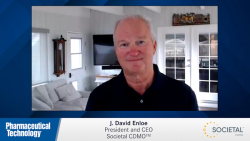
OR WAIT null SECS
- About Us
- Advertise
- Contact Us
- Editorial Info
- Editorial Advisory Board
- Do Not Sell My Personal Information
- Privacy Policy
- Terms and Conditions
© 2026 MJH Life Sciences™ , Pharmaceutical Technology - Pharma News and Development Insights. All rights reserved.
LIVE from BIO 2012: Capital and Tax Policies Burden Biotech, but Optimism Remains
Here in Boston, the crowds are bustling at the BIO 2012 Convention and Exhibition. Today, BIO unveiled survey results that polled about 170 biotech industry leaders and 800 US voters, conducted by Hart Research and Public Opinion Strategies.
Here in Boston, the crowds are bustling at the BIO 2012 Convention and Exhibition. Today, BIO unveiled survey results that polled about 170 biotech industry leaders and 800 US voters, conducted by Hart Research and Public Opinion Strategies. Approximately 63% of biotech industry leaders said that they feel “very optimistic” about the future of biotech and its ability to develop new products that will meet global needs. A similar survey was conducted in 2007 showing that 79% of industry leaders were optimistic about biotech’s future. So there is a dip in optimism here, but considering the economic downturn of the past couple of years, such a change is not surprising.
Among major challenges the biotech industry is facing, the top two listed concerns were regulatory burdens and lack of available capital. A close third was tax concerns. Investors in all industries have been avoiding risk more than they have in the past, and in biotech, seem to be straying away from early stage investments. One interesting connection here is that more than half of the BIO polled participants say their company has been approached by a foreign government to move operations overseas. Tax policies and incentives have a large role in this development–companies in many cases are finding more appealing situations outside of the home base.
BIO’s survey of American voters tried to get at this issue–at least from the perspective of US companies being tempted to move business abroad. They found that 56% of voters support the enactment of US tax policies and direct funds for biotech businesses. Whether or not the government picks up on this notion remains to be seen, but survey respondents did note that “partisan gridlock”in Washington is a chief concern in terms of the how the industry evolves over the next 5 to 10 years. The survey noted that since 2002, Americans have largely been favorable of the biotech industry (ranging from 44 to 49%) but what’s interesting is that those stats are largely based on voters who don’t know much about what the biotech industry does. When pollers explained what the industry is about, that percentage shot up to 83% being favorable.


